This article, related to TDG Training Requirements, first appeared in the 2016 Mar/Apr edition of Propane Canada Magazine.
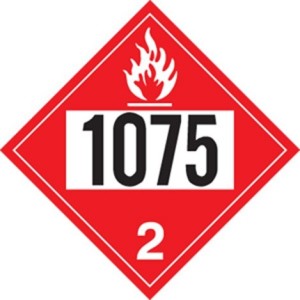 This article addresses some of the questions posed to us at Fuels Learning Centre with respect to the Transportation of Dangerous Goods (TDG) training requirements. While the TDG training requirements have been in place for many years it does not hurt to occasionally review and discuss the TDG training needs of the propane industry.
This article addresses some of the questions posed to us at Fuels Learning Centre with respect to the Transportation of Dangerous Goods (TDG) training requirements. While the TDG training requirements have been in place for many years it does not hurt to occasionally review and discuss the TDG training needs of the propane industry.
TDG Training Basics
Part 6 of the Transportation of Dangerous Goods Regulations provides the regulatory requirements for training for persons who, handles, offers for transport or transports propane must be trained in those functions. Transport Canada (TC) has published guidelines that are intend-ed to help employers determine which employees should be trained and what should be included in the training.
How to train employees is not mentioned in the regulations. Training may be done through a combination of formal “in-class” training, on-the-job training, and extensive work experience. It is up to the employer to decide.
Training Certificate
The employer must provide an employee with a Training Certificate as proof of training indicating the specific training an individual has received. Self-employed individuals must also determine if they are adequately trained and issue them-selves a training certificate.
I would encourage employers and those who are self-employed to visit the TC website to ensure that you are complying with all of the training requirements.
No Requirement for Training if Under Direct Supervision
The TDG Regulations do not require a person to be trained to handle, offer for transport, and transport propane as long as they are doing so under the direct supervision of a trained person.
The key to understanding this requirement is the words “direct supervision”. Neither the TDG Act nor Regulations define “direct supervision”. In cases as this where the regulatory requirements do not define a term we look for other published definitions.
For example, Ontario Regulation 215/01 Fuel Industry Certificates defines “Direct Supervision” to mean “the supervision provided by a supervising certificate holder who is on site in close proximity to a trainee and is available to assist and supervise the trainee”.
Another definition is provided by a Legal Definitions website, which states; “Direct Supervision generally means to be physically present, or within an immediate distance, such as on the same floor, and available to respond to the needs of something or someone”.
As you can see the industry best practice, in this case, is to ensure that the person providing the direct supervision is present or in close proximity to the person under supervision.
One thing to remember is that if you are providing “Direct Supervision” to a person, you are responsible and accountable for that person’s actions. If there is an incident and it is shown that the person under your direct supervision was not properly supervised, you were away from the transfer facility or not in the cab of the truck, you can and will be the one held responsible. It is therefore in the supervisors and the employee’s best interest that the employee is properly trained and is the holder of a Training Certificate.
Training Organizations
While the TDG Directorate maintains a listing of organizations which provide dangerous goods training, the Directorate does not examine or certify any of the courses offered and the listing of organizations does not imply endorsement or approval of the training offered by Transport Canada.
Focused Training
Some employees may only need training in the aspects of the regulations that are directly related to their work. If a tank truck, cargo liner or cylinder delivery vehicle is loaded by a plant person, then that plant person may only need specific training in relation to the offering for transport and handling of propane. Conversely, a driver who drives the truck will require training in transporting and for unloading, handling. In this situation, it is the employers’ responsibility to deter-mine what constitutes adequate training for their employees.
To make it simpler for employers to determine what TDG training an employee requires, Fuels Learning Centre embeds the necessary TDG training requirement in our cylinder/automobile filling, tank truck, cargo liner and cylinder delivery training modules so there is no need for persons performing those functions to take an additional TDG training program and no guess work on the part of the employer on whether the employee received the correct training.
An employer can feel comfortable that the employee has received the correct TDG training and issue a TDG Training Certificate to each student who successfully passes the training module. Also by embedding the necessary TDG training within the training modules saves time and money.
Handlers, Offerers, and Transporters of Propane
Regulations stipulate that no person shall import, offer for transport, handle or transport propane unless the person complies with all safety and security requirements, the propane is accompanied by the required documentation, and that the means of containment and transport vehicle used comply with all safety standards and display all safety marks required by regulation.
The responsibility for compliance falls on multiple parties, although there are three primary categories of people who work with propane depending on their specific job functions.
Handlers of Propane
Handling refers to loading and unloading propane into a means of containment for the purpose of transporting it or storing the propane in the course of transportation. Therefore, handlers of propane are individuals who transfer propane from one container to another, handle pro-pane containers and operate bulk delivery vehicles. This would include, but is not limited to:
- workers who fill propane cylinders and auto propane tanks at refilling centres;
- bulk truck drivers who fill their bulk trucks from the refinery or storage and deliver propane to end-use customers; and
- refinery workers who load propane into rail cars for shipment.

Offerer of Propane for Transport
The person who offers for transport is the person who, for propane not in transport, selects or allows the selection of a carrier to transport the propane, to prepare or allow the preparation of the propane so that a carrier can take possession of the propane for transport or to allow a carrier to take possession of the propane in transport. The offerer of propane is also referred to as the consignor.
The offerer of propane is generally a corporate entity. Outside of handling and transporting propane shipments, the offerer carries primary responsibilities for the classification of propane, appro-priate documentation and emergency and security planning. Some of the individuals who are responsible for these primary responsibilities include:
- Individuals who classify propane and provide proof of classification;
- Individuals who obtain or prepare Safety Data Sheets for distribution to carriers and receivers of propane shipments;
- Individuals who select a carrier of propane shipments; and
- Individuals who bill customers for the shipment of propane.
Transporters (Carriers)
This refers to individuals who are in possession of propane while it is in transport. This would include, but is not limited to:
- Road transport companies;
- Rail transport companies
- Propane retailers;
- Bulk truck drivers; and
- Operators of other vehicles carrying propane such as cylinder trucks and crane trucks.
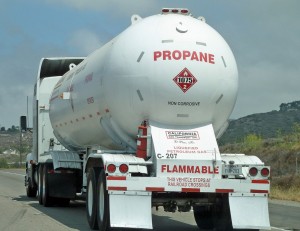
Some individuals may fall into more than one of the above three categories and the level of training they require to meet the regulatory requirements depends on the scope of their individual jobs.
Specific TDG Training Requirements
Base Content for All TDG Training
The following items must be included in TDG training and serve as the “base” for TDG training:
- Definition of the nine classes of dangerous goods and their associated hazards;
- Shipping names, classes, UN numbers and packing groups for the dangerous goods that are normally encountered on the job;
- Safety marks such as labels and placards that are used to identify the different classes of dangerous goods that are normally encountered on the job;
- Knowledge of the information that must be on a shipping document;
- The requirements regarding mixed loads and the need for segregation of incompatible dangerous goods;
- The proper selection and use of means of containment for the dangerous goods;
- What to do if the shipping documents, placards, labels, other safety marks or means of containment seem inadequate or incorrect;
- What constitutes an accidental re-lease and the reporting requirements if an accident happens;
- Proper use of all equipment that is used in the handling, offering for transport and/or transportation of dangerous goods; and
- Emergency Response Assistance Plans (ERAP) requirements if a plan is required.
Training for Handlers of Propane
In addition to the standard items required in all TDG training, handlers of propane must also receive training in the following areas:
- Types of placards, labels, signs, num-bers and other safety marks, what they mean, and when and where to display them;
- A thorough knowledge of the control and emergency features for all handling equipment used in the day-to-day activities of the job;
- Safe practices on the loading and stowage of propane;
- When to remove placards, UN numbers, and other safety marks;
- The proper selection and use of means of containment for propane.
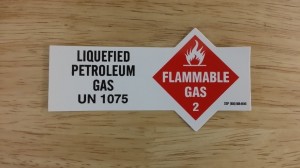
Training for Offerers of Propane
In addition to the standard items required in all TDG training, offerers (con-signors) of propane must also receive training in the following areas:
- All of the requirements required for documentation except for the location and the rail consist;
- How to communicate the special instructions and precautions for the handling and/or transporting of propane while on the job;
- Types of placards, labels, signs, numbers and other safety marks, what they mean, and when and where to display them;
- The proper selection and use of means of containment for propane;
- The Emergency Response Assistance Plan requirements (ERAP) if a plan is required.

Training for Transporters of Propane
In addition to the standard items required in all TDG training, transporters of propane must also receive training in the following items:
- Types of placards, labels, signs, numbers and other safety marks, what they mean, and when and where to display them;
- The location of the shipping documents and the importance of keeping them accurate;
- Requirements for parking, loading and vehicle inspection which may apply.
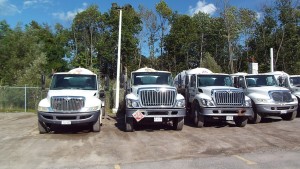
Training Required to Fill Cylinders Larger than 46 Litres in Capacity
We have been asked many times about the requirement for TDG training for individuals who fill cylinders at retail filling centres. The 150 kg and 500 kg exemptions in the regulations remove the training requirement, however, the exemption is limited to cylinders up to 46 L in capacity. The Small Means of Containment exemption does allow for larger cylinders, however, the exemptions only apply to the transport of the propane and not the handling. Therefore, if your employees are going to be filling cylinders larger than 40 pounds in capacity, they must have TDG training specific to the handling of propane.
Embedding of Specific Training into Training Courses
At Fuels Learning Centre we not only embed the required TDG training but also, dependent on the training module, we embed other specific training requirements a person needs to complete the tasks required for their job.
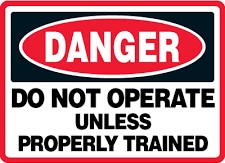
For example, a version of our tank truck driver training course includes inspection of propane tanks and pressure relief valves, truck-to-truck transfer requirements specific to each province and directions for how to safely light appliances for fuel outages.
View PDF
 In June, 2017, Transport Canada issued its next Transportation of Dangerous Goods newsletter (Vol .37, No. 1). The newsletter provides readers with updates on various programs and happenings within the TDG Directorate.
In June, 2017, Transport Canada issued its next Transportation of Dangerous Goods newsletter (Vol .37, No. 1). The newsletter provides readers with updates on various programs and happenings within the TDG Directorate.






